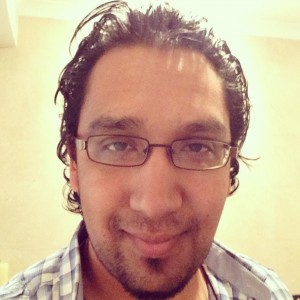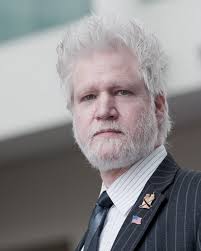
2017
Kalvik, Jan. “Intelligence & the Nobel Peace Prize,” Defence and Intelligence Norway, February 6, 2017.
… in our view as editors, he is qualified both for helping to prevent World War III this past year, publicly confronting the lies being told by his own national intelligence community with respect to the Russians hacking the US election,[5] and for his body of work in the preceding year and over time, as summarized here:
For leadership in redirecting the craft of intelligence (decision-support) away from spies and secrecy enabling war and waste, toward open sources and methods favorable to peace and prosperity.
Schuttler, Lance. “Trump Is Penetrated: Former CIA Spy Drops Bombshells in RT Interview,” The Mind Unleashed, January 27, 2017.
2016
Schuttler, Lance. “Ex-CIA Spy: A Global Open Source Revolution is About to Begin,” The Spirit of Science, June 26, 2016.
Steele, Robert, with Jan H. Kalvik, “Introducing Robert David Steele,” Defence and Intelligence Norway, April 1, 2016.
2015
 Steele, Robert, with Daniel Araya. “Interview: Former CIA Officer Robert Steele Discusses Why We Need an Open Source Revolution,” Futurism, December 2, 2015.
Steele, Robert, with Daniel Araya. “Interview: Former CIA Officer Robert Steele Discusses Why We Need an Open Source Revolution,” Futurism, December 2, 2015.
Steele, Robert with Hans Kern, “World Brain II.0 or How We Should End Secrecy and Learn to Harvest the Hive Mind,” Rag’n’Rock (UK), June 2015, pp. 1-23.
2014
The Former CIA Spy Who Discovered the Commons
EXCERPTS
I don’t know Steele, but I’ve seen his videos and dipped into his writings, and he seems to bring a deep intelligence and big-picture perspective to analyzing our global and civilizational problems. His self-stated goal is to hasten “the transition from top-down secret command and control to a world of bottom-up, consensual, collective decision-making as a means to solve the major crises facing our world today.” That’s a description from his book, The Open-Source Everything Manifesto: Transparency, Truth and Trust.
EXCERPTS
Last month, Steele presented a startling paper at the Libtech conference in New York, sponsored by the Internet Society and Reclaim. Drawing on principles set out in his latest book, The Open-Source Everything Manifesto: Transparency, Truth and Trust, he told the audience that all the major preconditions for revolution – set out in his 1976 graduate thesis – were now present in the United States and Britain.
Steele’s book is a must-read, a powerful yet still pragmatic roadmap to a new civilizational paradigm that simultaneously offers a trenchant, unrelenting critique of the prevailing global order. His interdisciplinary ‘whole systems’ approach dramatically connects up the increasing corruption, inefficiency, and unaccountability of the intelligence system and its political and financial masters with escalating inequalities and environmental crises. But he also offers a comprehensive vision of hope that activist networks like Reclaim are implementing today.
As published in Nafeez Ahmed, “The open-source revolution is coming and it will conquer the 1% – ex CIA spy,” The Guardian, 19 June 2014.
2014
Putting the Steele into intelligence reform (Rob Dover in Kings of War)
EXCERPTS
Robert Steele is one of the more interesting writers on intelligence. Based in the US, and a former practitioner he has brought an enormous amount of energy to the questions around intelligence effectiveness and intelligence reform, and can rightly be thought of as a grandfather of the open-source intelligence movement, and more recently the expanded “Open Source Everything” meme.
Steele argues that secrecy is inherently a decapitation function in conflict with the mission of decision-support and that the best intelligence is that which can be shared broadly, eg with the media, the public, and all other stakeholders such as the EU.
Indeed, Steele has proposed an Open Source Agency for the USA, a Multinational Decision Support Centre for NATO/EU, and a United Nations Open Source Decision Support Information Network for the world at large.
2010
2010 PhD Author Dissects Intelligence Reformer Robert Steele [Click on Cartoon for 5 Pages]
EXCERPTS
Several senior military officers, among them General Anthony Zinni, agree with Steele,
explaining that they rarely use secrets and often rely on openly available reports, and often from organizations not in the IC. This is not an argument for skipping all secrets, but for radically redefining how to serve the decision-maker.
He won a timed contest pitting himself and a telephone against a team of CIA experts, and he was even able to supply a better map during that test. While he is just a node, his network is powerful.
He borrowed a United Nations list of global threats to use as intelligence priorities, which
differs greatly from U.S. government priorities. He writes: “. . . In the context of poverty, disease, genocide, and all the other effects of our corrupt mismanagement of Earth, terrorism is a traffic accident.”
Here is a sample of his political platform, which is continuous with his intelligence
platform:
The central problem of our time is the failure of human organization-its failure to scale, to adapt, to assimilate. We believe the failure stems directly from a rejection of diversity and a falsification of feedback loops-the absence of integrity. We’ve come to the conclusion that the discord between politics and intelligence is contrived-there is no inherent opposition between politics (choice of best path for all) and intelligence (presentation of best achievable truth for all) provided one condition is met: integrity among the majority of individuals engaged in each. If intelligence loses its integrity and allows itself to be politicized or worse, ignored, then intelligence fails. Similarly, if politics loses its integrity and overplays the secrecy card while also shutting out the diversity of views that are essential to achieving a sustainable consensus, then politics fails.20
As published in Kent C. Myers, Reflexive Practice: Professional Thinking for a Turbulent World (New York, NY: Palgrave McMillan, 2010); pp. 82-86.
2009
2009 Homeland Security Today: Vet with a Vision
EXCERPTS
The rarely restful mind of 30-year Intelligence Community (IC) veteran Robert David Steele (who, among his varied IC missions served as a CIA clandestine services case officer, co-founded the Marine Corps Intelligence Center and is the undisputed, tireless champion of open-source intelligence, (OSINT) is filled with futurist concepts for IC reformation, restructuring, and rethinking that are inspired, brilliant … and soaked with common sense.
Robert is one of the most influential and visionary people in the world of intelligence today. His ideas are truly awe-inspiring and revolutionary. Robert’s message of open source intelligence is so simple that it’s almost mind-boggling to conceive that we don’t actively practice this today. His ideas to bring change to human civilization through open ideas and communication are what we need to become a better society,” said Douglas S. Simar, a communications technology specialist.
Insiders candidly told HSToday.us that those who sidestep Steele as though he is made of kryptonite stems from the fact that his progressive thinking is, well, is beyond the pale. It’s just much too deep for either the politically appointed intelligence custodians or the benefactors who appointed them, or their legislative minders. In other words, it’s all beyond the cognitive capabilities of all these folks’ mental gymnastic abilities of reasoning and understanding, as a number of Steele’s admirers said – on background, of course.
Using a baseball analogy, Steele explains that “in the old days, government bureaucrats accustomed to unlimited budgets and secret methods would try to win a game simply by bribing a player (clandestine intelligence), putting a ‘bug’ in the dug-out (signals intelligence), trying to ‘sniff’ the direction and speed of the ball (measurements and signatures intelligence), or taking a satellite picture of the field every three days (imagery intelligence).”
Today, Steele updates his wicked humor by noting that the clunky imagery satellites have been replaced by 24/7 Predators circling high overhead, and “if we don’t like the umpire’s call, we simply take out [the target] with a missile, never mind the collateral damage.”
But “this approach is no longer appropriate,” he insists, saying that “in our new era, everyone, including any terrorist, has the option of using open sources of information that are equal or superior to secret sources.”
“The new craft of intelligence requires all the players to function as part of a team and asks them to win however they can. It uses the collective wisdom of all the participants. It encourages the crowd to participate. Open-source intelligence harnesses what everyone sees and knows. It changes the rules of the game.”
A serial pioneer of the first order, Steele suffered over 20 years of dismissal by the government he worked for, including being called a lunatic by CIA managers in 1992 when he first put forward the idea of collective open intelligence networks in the Whole Earth Review article, “E3i: Ethics, Ecology, Evolution, and Intelligence: An Alternative Paradigm.”
But futurists have been dismissed throughout history, despite the lesson from history that the concepts of many visionaries were eventually proven accurate.
As published in Anthony Kimery, A Visionary IC Vet’s Vision for 21st Century Intel, Homeland Security Today, April 07, 2009
2000
2000 The Year in Computing Open Source Solutions
EXCERPTS
“Although the defense intelligence agencies have failed to understand open source solutions, the commanders of the theaters, the Pacific Command, and the Transporation Command have, in recent years, recognized that open source solutions can offer 90 percent of what they need for planning and peacekeeping around the world,” said Steele in a recent interview.
The OSS.net approach to global coverage, in this case, goes beyond research, and, with client approval, they established expert discussion forums. Experts are defined as those clearly at the top of their field, based on citation analysis.
“Within two weeks, we identified more than 350 distinct URLs associated with terrorism, armed opposition, and political opposition, in 27 languages,” said Steele. “We did this without being intrusive, using only legal and ethical methods,” he added.
Steele says OSS.net ties together four primary targets: (a) machine processing of digital information; (b) human processing of complex concepts; (c) intelligence community processing for discovery and evaluation; and (d) academic process for working with the right combination of personnel for the assignment.
Forums for all nations, where open-source data collection and its use can be discussed and information on the latest software for large scale data management is available, continue to be important even beyond the U.S. federal government.
As published in Dawn Marie Yankeelov, “Open Source Solutions, Inc.,” The Year in Computing, 2000
1993
1993 Alvin Toffler, “The Future of the Spy” in War & Anti-War
EXCERPTS
The very notion of “national security,” which these institutions claimed to serve, is being broadened to include not simply military but economic, diplomatic, and even ecological components.
In turn, the Third Wave explosion of information and communication means that more and more of what decision-makers need to know can be found in “open” sources. … To ignore all this and base analysis on closed sources alone is not only expensive but stupid.
Few have thought as deeply or imaginatively about such questions as a super-smart, forty-one-year-old former Marine and intelligence expert named Robert D. Steele.
Sounding like a new breed of CEO in American business, he complains of organizational short-term-itis. U.S. intelligence, he says, usually places too much emphasis on immediate payback, not enough on long-term nurturing of its secret foreign assets.
Steele takes seriously the new threats posed by today's world. He believes the United States is hopelessly ill-equipped for a reality in which ideological, religious, or cultural warriors roam the planet, and computer “crackers” can turn up in countries like Colombia or Iran, placing their talents at the services of criminals or fanatics.
Steele may well be the single most forceful enemy of secrecy in Washington. “Of course some secrets are necessary. But the hidden costs of secrecy are so immense they often outweigh the benefits by a wide margin,” Steele contends.
Steele is driven by a vision that reaches far beyond the immediate. “Imagine,” he exhorted that first Open Sources Symposium, “an extended network of citizen analysts, competitive intelligence analysts in the private sector, and government intelligence analysts — each able to access the other, share the unclassified field, rapidly establish [computer] bulletin boards on topics of mutual interest, and quickly pull together opinions, insights, and multimedia data without restriction. This is where I think we need to go.” He wants intelligence to draw on all the “distributed” knowledge available in society.
But even this does not capture the breadth of his vision. Steele wants more. He proposes to “link national intelligence with national competitiveness…making intelligence the apex of the knowledge infrastructure.” He not only believes intelligence should draw on public sources but that it should also, for the most part, be made available to the public. He speaks of using intelligence to provide valuable information “from the schoolhouse to the White House.”
Steele sees “intelligence as part of a continuum, or a larger national construct, which must also include our formal educational process, our information cultural values, our structured information-technology architecture, our informal social and professional networks for information exchange, our political governance system.” He sees intelligence, in short, not just as a source of cloak-and-dagger information massaged into “estimates” for a handful of top policymakers but as a vibrant contributor to the knowledge system of society as a whole.
Steele's vision will thrill many — and send a nervous quiver down the spines of others. … His campaign is one of the forces aimed at adapting intelligence to the realities of the Third Wave.
To worry about war or anti-war in the future without rethinking intelligence and seeing how it fits into the concept of knowledge is an exercise in futility. The restructure and reconceptualization of intelligence — and military intelligence as a part of it — is a step toward the formulation of knowledge strategies needed either to fight or forestall the wars of tomorrow.
As published, Alvin Toffler, “The Future of the Spy,” War and Anti-War: Survival at the Dawn of the 21st Century, Little Brown & Co, 1993.









